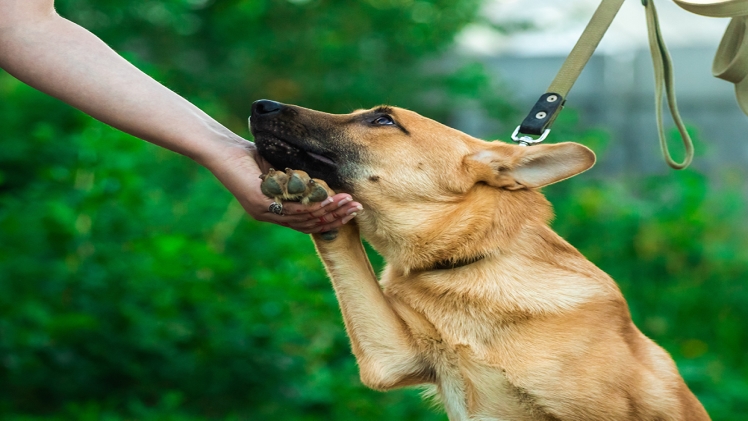Dogs can get stressed for various reasons, like boredom, frustration, anxiety, and loneliness. Identifying the cause of stress greatly helps in resolving the issue.
If you are a pet owner dealing with puppy tantrums daily, you should probably look for help. Your vet can be the best person to guide you on this, so you must seek their advice soon.
They can suggest behavioral therapy, medications, or other treatments depending on what is triggering stress in your puppy. Pet insurance can cover your canine friend’s medical care if the behavioral problem is due to an underlying health issue.
Cheap dog insurance policies help provide your puppy with timely medical assistance during unanticipated health scenarios and emergencies. Consider buying a pet policy to potentially make significant savings on unplanned vet bills, with little hassle.
Meanwhile, read the information below to understand various ways in which stress manifests in pet dogs.
1.Fear
Stress takes the form of fear in response to external threats. As a puppy owner, you must carefully observe your pet to determine whether the cause of your puppy’s fear is genuine. For instance, your puppy’s fear-based aggression is justified when there is an actual threat. Also, a puppy can act out if it perceives that its owners are in a potentially dangerous position.
In contrast, if your puppy reacts adversely to situations where there is hardly any threatful involvement of humans, animals, or objects, the behavior can be called inappropriate. However, remember that your puppy’s interpretation might differ from yours. Sometimes, you can be wrong as much as your puppy can be wrong.
So, learn to tell the difference between real and imaginary threats.
2.Phobia
Phobia is an intense fear of an external stimulus. Commonly dogs have a massive phobia of loud noises generated by thunderstorms, speakers, fireworks, electronic appliances like vacuum cleaners, etc.
3.Anxiety
It is a form of stress where a dog can feel uncomfortable or panic due to anticipation of danger. For instance, separation anxiety can trigger many abnormal reactions from your puppy. Whether you are heading out for short or long periods, the puppy knows that you are getting away from them, and they might hate it.
4.OCD
Prolonged stress can take the shape of an obsessive-compulsive disorder. Dogs can get into many habits to calm themselves. Sometimes, these behaviors can transform into compulsive and destructive habits like crying, excessive licking, incessant barking, aggressive biting/chewing, pacing, digging, and damaging things.
Such conduct can lead to skin allergies, infections, teeth issues, stomach upsets, abdominal pain, and other serious health problems. It is more often a self-soothing tactic or way to get your attention.
5.Hypervigilance
You can quickly spot stress consumed dogs by looking at their dilated pupils and rapid blinking. A puppy mostly stands stiff while preparing for a face-off; however, this body language is associated with the fight/flight response of the autonomic nervous system.
Upright or pinned back ears, tucking tails between legs, and shifting weight to the hind can also indicate the dog is stressed.
Consider removing the stimulus that is stressing out your puppy. It is advisable to help your puppy overcome negative behaviors right in the beginning because it can be difficult to correct a chronic behavioral problem.
At the same time, remember that pet insurance covers your canine fur baby’s medical care in times like these only if the behavioral problems are due to other health issues that can be treated. So, even if you are considering purchasing cheap dog insurance, read the policy disclosure statements to know what your puppy is covered for before signing up.

